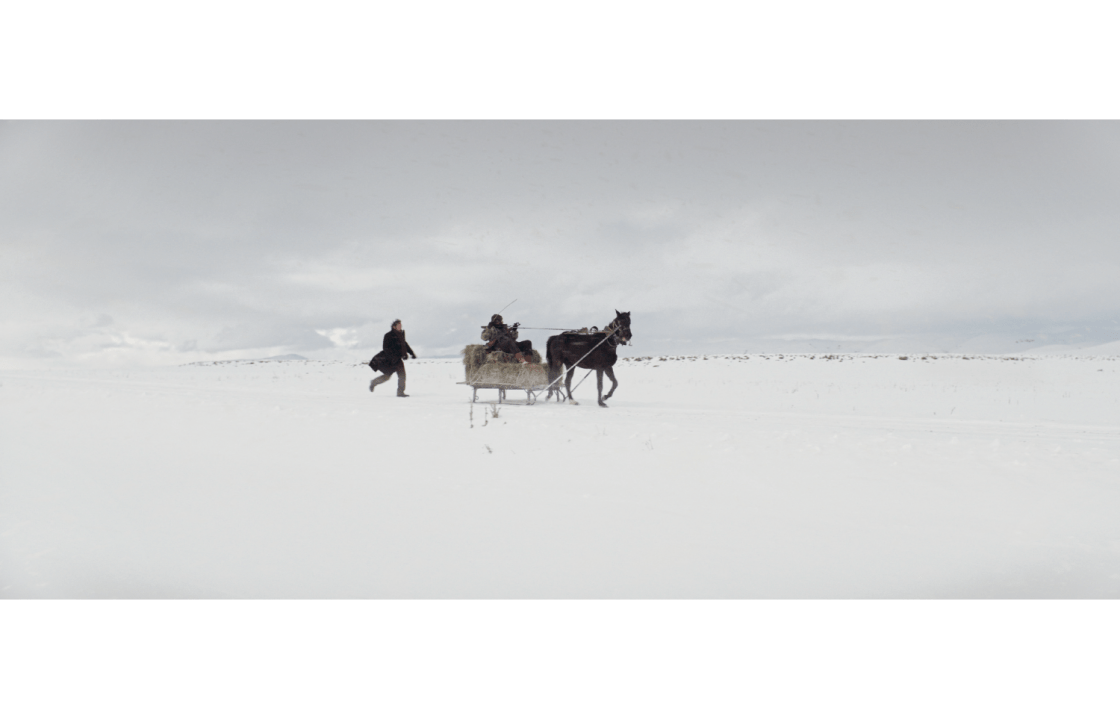About Dry Grasses is the latest film from Turkish auteur Nuri Bilge Ceylan and it had better – I thought to myself as the lights dimmed – have a great deal to say about dry grasses that is fascinating and insightful, given it has a formidable running time of 200 minutes. (That’s nearly three and a half hours in old money.)
It is, needless to say – with a title like that, few will mistake it for a Marvel flick – one of those films where the story unfolds obliquely and meditatively and may say everything or nothing, it’s hard to know. All I can tell you for sure is that I wasn’t ever bored even if dry grass doesn’t make an appearance until three hours and nine minutes in. A spoiler, yes, but best to be clear, so you don’t complain later.
With a title like that, few will mistake the film for a Marvel flick
As in most films by Ceylan (Three Monkeys, Once Upon A Time In Anatolia, Winter Sleep) we are asked to live alongside the characters as they go about their daily business. The main character is Samet (Deniz Celiloglu). He is first glimpsed as a speck, trudging wearily against a spectacular if desolate winter landscape so blanketed in heavy snow that there isn’t a blade of grass to be seen, dry or otherwise.
Samet is an art teacher in his fourth and final year of a mandatory placement in eastern Anatolia. The town is small and remote and he holds it in contempt. It is, he says, ‘a hellhole’ and ‘a dump’. He plans to seek a position in Istanbul and is keen for the year to be over. Ceylan’s creative partner and co-writer, Akin Aksu, was a teacher in just such a place and the film is based on the journal he kept while he was there.
The teachers are all returning from the holidays and the initial talk in the staff room is about a local hawker of perfume. Since he wears a fake tracksuit does that mean the perfumes are fake too? No, says a female teacher. Yes, says the PE teacher. That’s the type of conversation we’ll be eavesdropping on; and yet, in its banality, it’s strangely compelling. The film doesn’t slap you with dramatic events. This isn’t Marvel, remember. The school janitor has new chickens, and that’s a scene right there. But things do happen.
Samet has a favourite pupil, Sevim (Ece Bagci), who is, I would guess, around 13. When there’s a complaint from a pupil accusing him of behaving inappropriately, he wonders: is it from her? That does seem momentous, admittedly, but it plays out in a low-key way even if it does throw him off balance. Elsewhere, he goes on a blind date with Nuray (Merve Dizdar), a teacher from the neighbouring town, whom he doesn’t fancy until a colleague takes an interest. Then he is beset by jealousy. Usually the protagonist of a film is the hero and we’re primed for Samet to somehow find that path until it occurs to you: he won’t.
The actors, who maintain an incredible level of naturalism throughout, are superb. And there’s much to be said for the setting, as it’s one of those locations you’ll probably never go to. I hung on to every detail. This is a place where hands are moisturised with olive oil, cheese pastries are eaten warm, black tea is endlessly drunk. There could have been less drinking of black tea, maybe, but while many of these scenes appear inconsequential they add to the film’s cumulative, seductive power.
That said, I have no idea what it’s about exactly – but themes thrum under your skin. Hope, disappointment, self-discovery: they’re all in here, along with, in the end, the dry grasses. Some will consider the film a masterpiece; others an ordeal. I’d lean towards the former but would also offer this advice: take sandwiches.








Comments